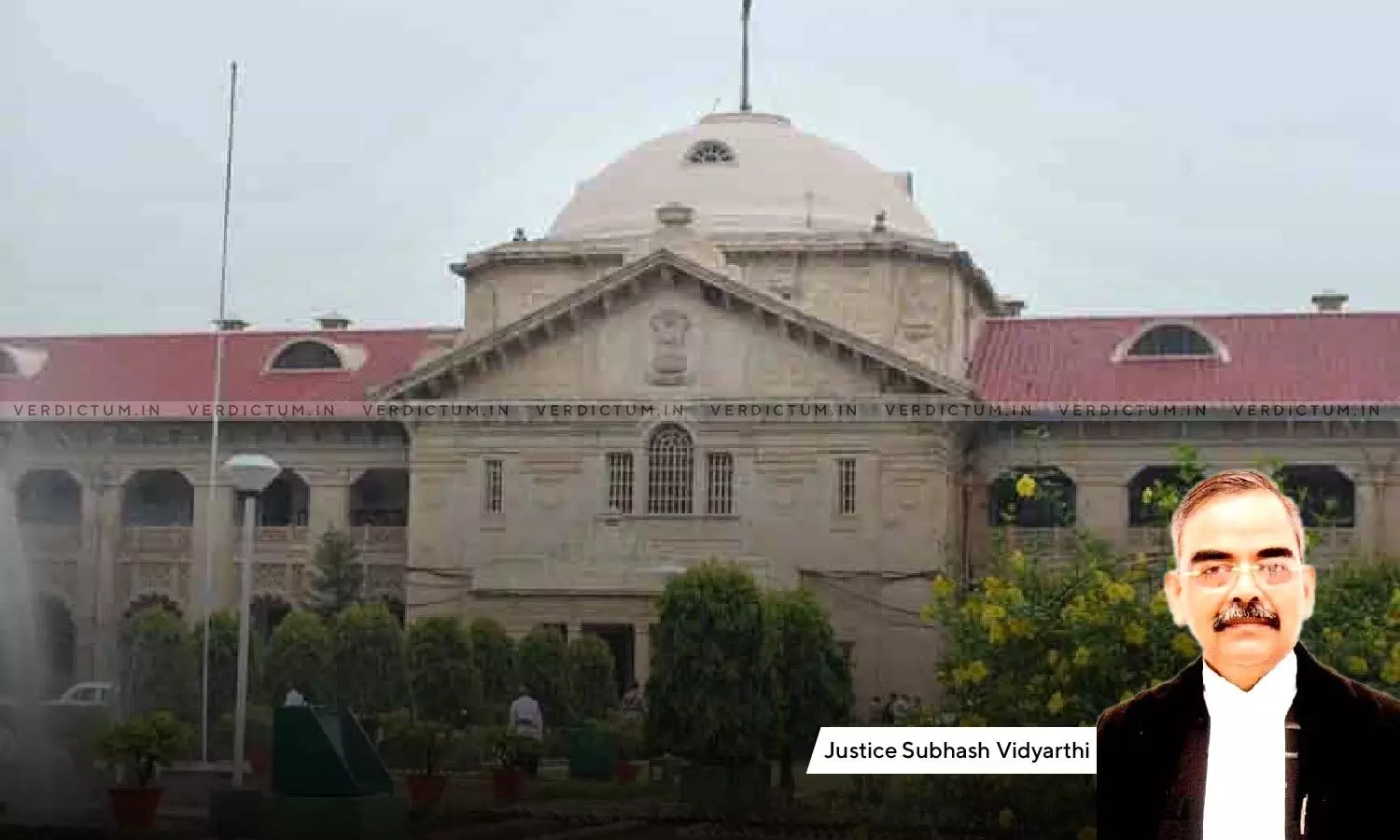
Object Of Conducting Test To Assess Merit Will Be Defeated If Wrong Answer Is Held Beyond Judicial Review: Allahabad HC
 |
|The Allahabad High Court has reiterated that the object of conducting a test would be defeated in case a wrong answer given in an answer key is held to be beyond judicial review.
The Court stated that it should exercise its writ jurisdiction to ensure that the error is rectified. “Where the key answers are palpably and demonstrably erroneous, the student community cannot be made to suffer on account of errors committed by the University,” the Court reiterated.
A Single Bench of Justice Subhash Vidyarthi observed, “The decision of the examining body or the expert is not beyond judicial review. The prime consideration is to maintain the fairness of the examination and welfare of the students/candidates, inasmuch as, in the event a wrong answer key is accepted, it would alter the fate of many candidates. The object of conducting an examination is to assess the merit of the candidates and to find out as to who is most suitable one for admission. The object of conducting a test would be defeated in case a wrong answer given is held to be beyond judicial review.”
Advocate Divyakeerti Bohrey appeared for the appellant, while GA Ritwik Parashar represented the respondents.
The petitioner challenged the validity of selections made for the post of Post Graduate Teachers (English) by the Secondary Education Services Selection Board (Board) under Article 226 of the Constitution.
After publication of the provisional answer key, some candidates filed objections against the answers to certain questions and thereafter, the Board published a revised answer key. Certain questions were marked “F” indicating that the questions either contained more than one correct answer or no correct answer and, therefore, all the candidates were awarded full marks for those questions. The petitioner argued that this resulted in serious prejudice to the petitioner.
The Court explained that when an answer runs contrary to the material published in a large number of acknowledged textbooks commonly read by students in a State, it leaves no room for doubt that “the answer given by the students is correct and the key answer is incorrect.”
The Court referred to the Division Bench's decision in Saumitra Ginodia v. Union of India (2017) wherein it was held that the decision of an examining body or an expert was not beyond judicial review.
“The key answers are palpably and demonstrably erroneous, the petitioner cannot be made to suffer on account of errors committed by the Selection Board and it calls for interference by this Court in exercise of the Writ jurisdiction so that the error is rectified and the wrong answers do not adversely affect the fate of the candidates and their merit is tested in a proper manner,” the Court remarked.
In terms of the relief which can be granted to such students, the Court stated that “If the petitioner figures in the merit list, he shall be offered appointment and he will be given seniority from the date the first appointments were made, but without any back wages or other benefit whatsoever. Other candidates, who do not make the grade after re-evaluation shall not be ousted from service, but shall figure at the bottom of the list of selected candidates based on the first selection in terms of Advertisement.”
Consequently, the Court quashed the revised answer key for making selections for appointments to the Posts of Lecturers (English) and directed the Board to re-evaluate the answer sheets.
Accordingly, the High Court allowed the petition.
Cause Title: Ajay Kumar Shukla v. State Of U.P. & Anr. (Neutral Citation: 2024:AHC:117007)